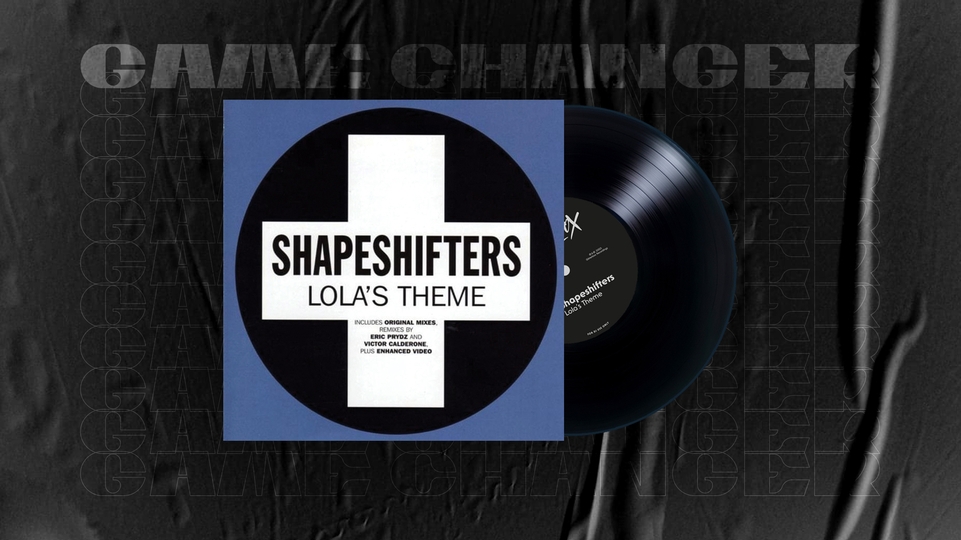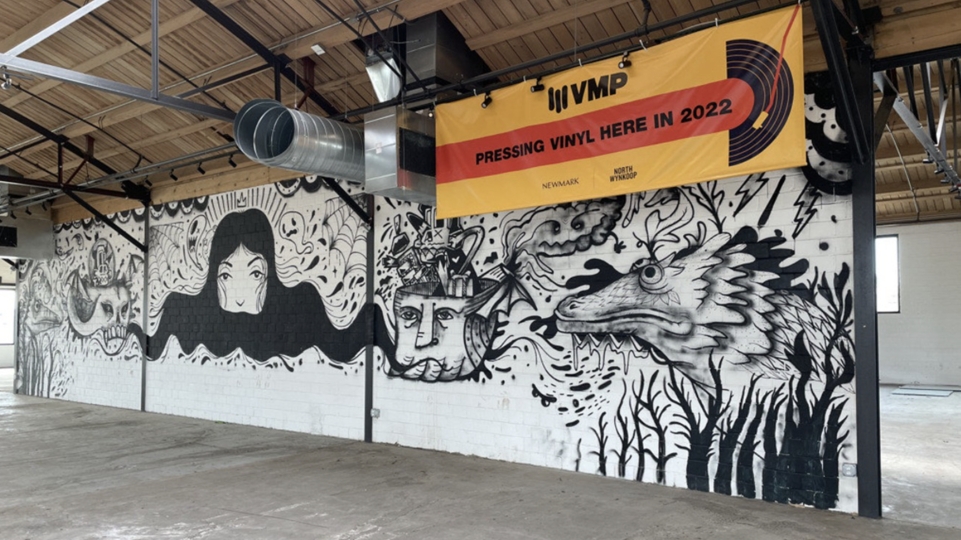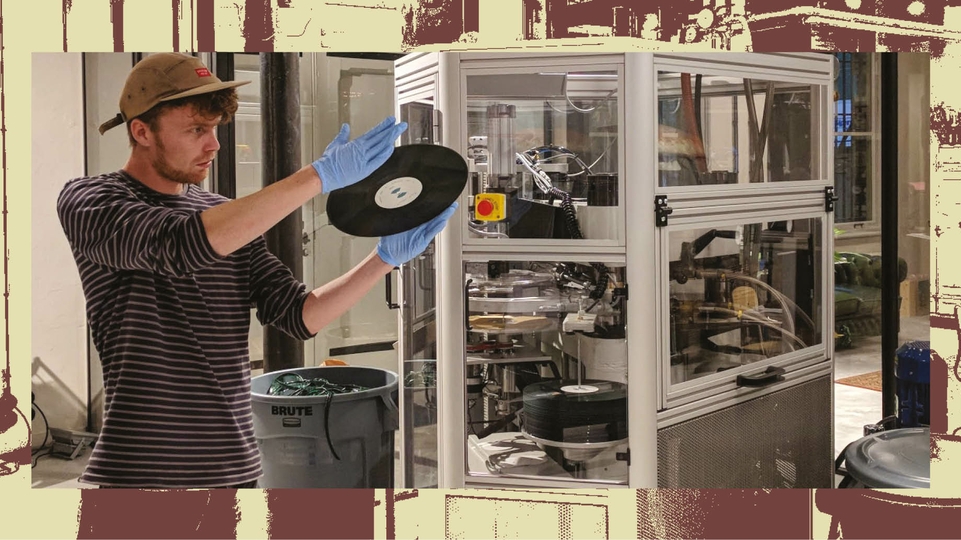
Illenium rises like a phoenix
Denver-based Illenium is the bass music star that sells out stadiums, but before he made music, he struggled with addiction. Around the release of his new album, ‘Ascend’, he opens up about his past and present
“The albums are a trilogy,” says Illenium. “That was my idea, which makes me wonder what I’m going to do next, but I’m not worrying about that right now.”
From afar, it seems like Illenium doesn’t need to worry about anything. He’s the highest-selling electronic music tour of 2019 in North America, at 250,000 hard tickets sold, and counting. This includes Madison Square Garden in New York City, Staples Center in Los Angeles, and three nights at Red Rocks in his hometown of Denver. He also has 2019’s highest-charting debut week for an electronic music album with his third long-player, ‘Ascend’, which was preceded by ‘Ashes’ and ‘Awake’.
Ensconced in his enviable, elaborate home studio, which is on par with any namedropping professional operation, he is reworking songs from all three albums for his live shows, a task that is both tedious and rewarding for him. Painstakingly removing elements from the album version of the songs to make room for live iterations sometimes evolves into accidental remixes, which reimagine the original in a far more epic way.
Everything Illenium does is a big statement. He releases albums rather than standalone singles. He tours with a full band that includes fellow electronic music stars Said The Sky on piano, Dabin on guitar and Day on drums. The explosive custom visual content that accompanies the performances is a powerful story that weaves through the personal topics Miller speaks of on ‘Ascend’. This has translated to almost 20 million monthly listeners on Spotify, evenly spread across his melodic bass, trap and dubstep tracks.
The triumphant phoenix that stands in for the ‘N’ in Illenium is there as a symbol of another aspect of his life — addiction — from the ashes of which he has awoken and ascended. While Illenium has not been secretive about his pre-Illenium addiction, at the time of the release of the first single from ‘Ascend’, (‘Take You Down’) in August of 2018, he penned a candid and deeply personal letter to his fans, which he shared through Twitter. In it, he spoke of his struggles with addiction and its effects on his family, as well as acknowledging his fans’ reactions to his music and its positive impact on their lives.
“I started drinking when I was 13-years-old, smoked weed at the same time,” he says, speaking of his high school years in San Francisco. “At that point, I was game for anything. I was around a lot of people that were party people, and I liked getting fucked up. I was still athletic, played football and lacrosse, but then I got into painkillers. I had done ecstasy and cocaine by then, but the first time I took painkillers, it automatically became a thing: ‘How do I get these every day?’ Vicodin, Percocet, Oxycontin. I’m now 16-yearsold and I don’t realise, ‘Holy shit, I’m addicted to drugs.’ It progressed really fast. By the time I was 18-years-old, I was on heroin.”
DESTRUCTIVE
Illenium comes from a stable family with loving parents and two older sisters who grew up to follow conventional paths. He didn’t have childhood trauma, but he was causing a lot of it for his family, who repeatedly caught him with drugs. He went through rehab multiple times and promptly developed new habits upon release. “This is something that perfectly describes how fucked up it is to be in deep addiction,” he says.
“When I was 19-years-old, I had a really bad abscess in my arm from heroin. I had to go into the hospital for a week. The day I got out, I was getting high in the other arm. The thought pattern makes no sense to me now, because it’s fucking insane, but at the time, all I had done for the past three years was disappoint people. If you don’t really care about yourself anymore and you feel like you’re just a disappointment, it’s way easier to numb that out than to deal with it, especially since that’s all I had known for so long.”
“When you’re close to someone that’s going through addiction, it’s such a hard thing,” he continues. “I feel like it’s almost harder for the person on the outside, because you lose sight of who the addict was. It’s so hard to stay loving of someone like that, because from your perspective, they don’t give a fuck about you anymore. They just only think of themselves, which is true. I didn’t care that it was affecting my family. In a perfect world, I wanted my family to stay loving me, but I also didn’t love myself so I wanted to numb myself all the time.”

SOBRIETY
Illenium moved to Colorado to try rehab for the ninth time. Now 20-years-old, he was sober for a year, but within a week of leaving rehab, he had overdosed. It was his mother who inadvertently saved him again. She hadn’t heard from him for a while, so she called a friend of his to ask him to check on him. His friend came home to find him non-responsive. His heart had stopped. “That’s what I needed,” says Miller. “You have to be fucking broken. It’s entirely up to the addict, unfortunately, and even the addict doesn’t know it’s up to them.”
Newly sober, and with time on his hands that needed to get occupied with a productive activity rather than a destructive one, he started experimenting on Ableton. He went the electronic musician route, having had his first introduction only three years prior, “rolling my balls off,” at a Tiësto show at the Cow Palace, the San Francisco stop for the Dutch superstar’s ‘Kaleidoscope’ album tour. “The intro to that album I’ll still listen to, because it is really epically dope,” he says.
He began writing for a friend’s Colorado-based blog, Big Green Beats, which gave him more exposure to electronic music and the scene surrounding it. He continued to make music, which he says sucked for at least a year, then moved to Denver and enrolled in a recording arts program. His parents would only help him out with rent if he was in school, and he thought maybe he would learn more production skills, but he learned more on the Internet and dropped out of the program.
He made un-commissioned remixes of Florence and The Machine, Lana del Rey, Odesza, Galantis, and Kaskade, and threw them up on SoundCloud. These bootleg releases both helped him learn a great deal about production, and got him attention as an inventive producer. In-between, he released EPs of his own, one per year in 2013, 2014, and 2015. In 2016, he was ready for an album.
“‘Ashes’ was a lot of sample-based stuff,” he says. “I would create an instrumental and get a vocal, or I would bootleg remix a vocal I liked, take out the vocal and make new vocals. It was a learning process. I still love some of the songs, and the sound I have was created when I made that album. I felt I had really found something, but it wasn’t perfected at all. For what I was doing at the time, I’m still really proud of that album. But I felt safe, so I might have abused my sound a little bit. Since I released ‘Awake’, I’ve made so many edits of it, because I want to crush the safeness and make it totally abstract stuff to play live.”

LEAP FORWARD
Illenium’s process for ‘Ascend’ has been a huge leap forward for him as a songwriter and as a musician. Each song either started with a vocal or with a piano progression that Miller came up with, over which the vocal was written. Before ‘Ascend’, he might have given the vocalist a theme personal to his life, to write the lyrics. This time, he wrote the lyrics himself, delving deep into the most personal aspects of his life past and present. He took what he had and travelled back and forth to Los Angeles to work with professional songwriters, who fine-tuned it.
“When I first started, I felt the electronic dance music artist mentality is: let the vocalist do their thing, let them have their space,” he says. “Now, I want to tell my story. I might not be the best songwriter, but I want to talk about my shit. ‘Take You Down’ was the first time I realised that I can be personal in my songs. It was tough in the beginning, because I’m not used to it, but it’s fun to build these awesome relationships with songwriters that can be the medium to tell my story. But it’s also hard, because you’re attached to your ideas and you don’t know if they’re good or not. It was a challenge I wasn’t used to.”
He’s always been drawn to songs, growing up listening to pop punk and alternative indie rock bands. The impact has been long lasting for him, mainly because of the lyrical content, which he says can only tell a story if they’re in an album format. “It’s hard to tell a story with crazy sound design,” he says. “If you really want to tell a story, you have to be making more melodic music with lyrics.
Vocals help set a tone and tell a story specifically. I am drawn to that, because it lets me not focus on making singles that are going to stream well. It lets me focus on a theme and create songs that weave in and out of each other, like the last four songs on ‘Ascend’. There’s heartbreak, there’s love, there’s overcoming demons. You don’t get to do that if you’re doing just singles and EPs.”
SONGCRAFT
Even before he laid everything bare on ‘Ascend’, Illenium’s music was already touching a lot of people. His fans call themselves “Illenials,” and during his performances, they alternate between doing the slow-motion bass music head bang, and singing every word like every song is directly speaking about and to them. This fact is not lost on him, who transfers all his emotion and energy into the live show, jumping and bouncing around in his signature Illenium jersey, adorned with the same number three he wore on his lacrosse jersey in high school.
“I feel like doing those albums,” he says, “putting the work into the shows, doing the edits, all these little tiny things and the emotion that goes behind them, people have gravitated toward and felt the emotion I feel making them. The difference with my shows is, you’re not just going to a festival or a show to rave and get fucked up, but it also has a vulnerable, ‘I felt so much shit listening to this in my room, I’m going to go experience it in a live setting’ type of thing. It’s fucking awesome. I’m lucky as hell.”
Whether luck has anything to do with it or not, he’s has worked very hard to get where he is, and he credits the right people supporting him and working just as hard as him, too. He feels like a very different person to who he was just a few years ago. Deep down, he has the same sense of humor, and he still knows he has his addictive qualities, but they are not at the forefront of who he is now. “I always had deep insecurities about myself, I didn’t feel worthy of much,” he says of some of his reasons for falling so deep into addiction.
“I still have bits and pieces of that, but part of the recovery process for me was learning that kind of self-love, which sounds kind of cheesy, but it’s really fucking cool when you don’t have it and then you do. You can actually live your life normally. Telling people not to do drugs is the worst fucking advice,” he continues, “If somebody told me not to do it, I would have been like, ‘I’m going to do all of them.’ Everyone has to have their own experience. But if I was talking to someone who was struggling, I would say, ‘Go to a meeting, find someone who has gone through it.’ I don’t go to many meetings now, because I feel making music is the most peaceful thing for me, and puts me in the place I’m supposed to be. It rearranges my emotions so I feel them the right way. When I make music, I’m putting all this energy into something that’s giving me back so much more.”




